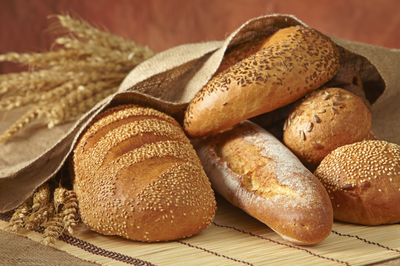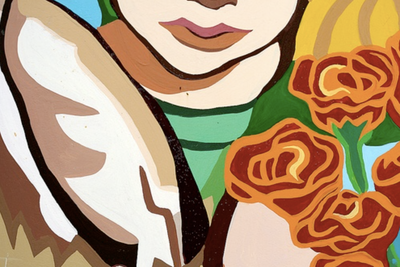|
Scripture: Isaiah 35:1-10
This morning’s reading from the prophet Isaiah is a poem that embodies hope. Addressed to those living in exile, it promises that God sees the plight of the exiles and promises to act to restore them to their home on Mount Zion. This poem is a word of hope to us, as well. From that age to this one, God sees the plight of God’s beloved and promises to make a Holy Way to guide us home. In 587 BCE, the Babylonians conquered Judah, destroyed Solomon’s beautiful temple, and took most of the residents of Jerusalem and the surrounding countryside into captivity in Babylon. They were forced into slavery and to remain in exile in Babylon. This exile continued for over fifty years, until the Persians conquered Babylon, and their king, Cyrus the Great, gave the Jews permission to return home. Today’s reading from the Isaiah was written to those living in slavery and exile in Babylon. It’s the same message that God gave to those living in slavery in Egypt many generations before this one. God hears your cries. God sees your plight. God will act to deliver you from this horrible situation. This morning’s poem is filled with signs of hope. The desert will blossom. The barren and rocky places where the jackals live will become swampy marshland. Those who are weak and infirm, including those who have been harmed by the Babylonians, will have their health restored. And, God will bring the people home. God will make a Holy Way – a path in the desert – that will bring them back to their home in Jerusalem on Mount Zion. And, here's the good news – it's a path that is so straightforward that “not even fools shall go astray!” From that time, all those millennia ago, to this day, these words continue to be God’s promise to us. God hears our cry. God sees the plight of God’s people. God will act to make a way forward, a way of health and healing, that will lead us back to God. It’s striking that when John the Baptist sends word to Jesus to ask if he’s the one, Jesus’ response echoes many of the signs that Isaiah foretold: the blind receive their sight, the lame walk, the lepers are cleansed, the deaf hear, the dead are raised, and the poor have good news brought to them. I don’t know about you, but it seems to me that we are living in a particularly scary time. Our news is filled with stories of people in perilous situations. The news out of Syria is horrific. Our relationship with China seems super rocky at the moment. ISIS continues to wreak havoc in a variety of places. In recent weeks there have been earthquakes, a tsunami, tornadoes and forest fires. In the United States and around the world, right now, young women are being trafficked and sold as sexual slaves. We continue to read about issues of racism in our country and abroad. In my own circle of friends, people I know and love are struggling with cancer, the loss of loved ones, the ending of long-term marriages, and prolonged unemployment. Periodically, I shake my fist at heaven and ask God to get busy on this blooming desert and Holy Way home thing. Haven’t we been waiting long enough? I don’t know about you, but I’m tempted to ask if it hasn’t happened yet, after 2500 years, are we foolish to keep hoping. In another passage from Isaiah, the prophet cries, “Why don’t you rend the heavens and come down?” Yes, God. Please. Now. I have some words of hope born of my reading of scripture and my own deep convictions, that I fall back on when I am in that fist-shaking mood. First, we are all just a breath away from that moment of homecoming. When we take our last breath, we will be brought into that world where, as the book of Revelation tells us, “Death will be no more; sorrow and crying and pain will be no more, for the first things have passed away.” When we breathe our last, we will walk that Holy Way to a new way of being where “all things will be made new.” It doesn’t change my desire to want this world to look more like the world to come – but when all hope feels lost, it’s helpful to remember that this world is not the end of the story. Second, for Christians, we see Jesus as the fulfillment of that promise that God makes in Isaiah 35. Jesus’ answer to John the Baptist shows that he saw himself as that fulfillment, as well. When we live fully into our calling as followers of Jesus, loving God and loving our neighbor, we become part of God’s way of making that Holy Way. Which leads me to my third point of hope. Here I quote that great theologian Mr. Rogers (who was, in addition to being my children’s television hero, a Presbyterian pastor). Mr. Rogers said, “When I was a boy and I would see scary things in the news, my mother would say to me, ‘Look for the helpers. You will always find people who are helping.’” Everywhere we look we are given the bad news. It’s because bad news sells. But if you sift through that bad news, you will find the helpers. You’ll find those who run towards the danger, not away from it. You’ll find those who are working hard to make the desert bloom, the irrigate the barren places, to bring healing to those who are in pain. Here’s a concrete example: In the African American community, there’s a saying – that God will make a way out of no way. In other words, when it looks like there is no way to go forward, God will make a path. During the height of the Jim Crow laws and racial segregation in this country, African Americans worked together to make a way out of no way. They developed ways to address their needs and aspirations that fostered values of community, service, and mutual support. Prayer, music, and worship were a vital part of making that way for many people. When ways forward were closed to them because of race, they made new ways forward. Jesus tells us that we are to love God and love our neighbor. That word love isn’t just an emotion. In Greek, it’s an active action verb. It’s another way of saying “be a helper” or “make a way out of no way.” How is God calling each of us to live that out in this day and time? It’s a question for each one of us. Right at this very moment there are those among us who are having the very best moments of their lives. And there are those going through the worst things imaginable. Most of us are probably somewhere in the middle. God’s promise to each of us, wherever we are on this journey is that God sees us. God hears us. God restores us. And God is building a Holy Way, with whatever helpers show up, to lead us home. Some days, we are desperately in need of those holy helpers. Other days we are the helpers. AMEN.
0 Comments
Leave a Reply. |
AuthorI'm Fran Gardner-Smith. I'm an Episcopal priest, a wife, a grandmother, a feminist, a writer, and an artist. Archives
April 2020
Categories |
Proudly powered by Weebly



 RSS Feed
RSS Feed